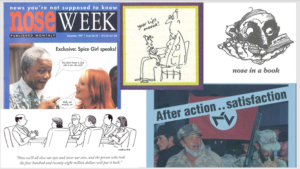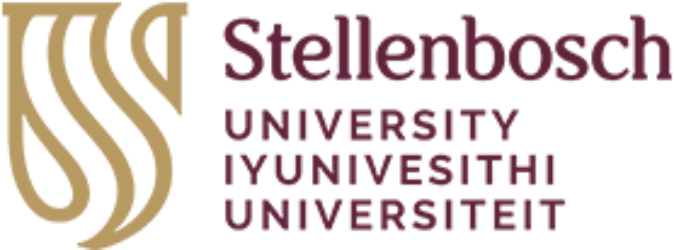The entire run of 250 issues of the South African investigative magazine, Noseweek, was donated to the Stellenbosch University (SU) Library and Information Service by Open Media Trust earlier this year.
The donation includes physical copies of the magazine as well as a complete digital archive.
Published by Chaucher Publications, Noseweek sadly published its last print issue in March this year. The publication ran monthly from June 1993, with Martin Welz as editor.
The publication describes itself as “South Africa’s only investigative magazine and features irreverent, independent, inside information about business, the professions, politics and society in South Africa […] it is essential reading for anybody interested in what’s going on in the rainbow nation” (Noseweek, 2021).
The forerunner of the publication was titled Nose and was established by Martin Welz in 1983 with prize money he received as Parliamentary correspondent of the Sunday Express for an exposé of “the corruption of doctors and public health services by a major pharmaceutical group” (Welz, 1996). Nose was run until 1987 from Welz’s garage and importantly, some of these early typed and stapled issues form part of the physical collection donated to the Library.
The Noseweek collection is undoubtably a rich resource for research on contemporary South African history, politics, government, society, business and journalism. According to Prof Lizette Rabe, Chair of the Department of Journalism, SU, “It is thanks to journalism, especially investigative journalism, that South Africa’s brittle democracy has been safeguarded. Noseweek will provide rich material for further research thanks to the courageous work of Martin Welz over so many decades – from pre-democracy’s dark days of apartheid, and, since the dawn of democracy, the incredible range of corruption, fraud and state capture”.
The collection also enriches our manuscript collections which have over the last few years been diversified by the addition of more contemporary collections such as the Frederik van Zyl Slabbert Collection, the IDASA collection and the digital Vrye Weekblad collection. Most recently, we received the South African Debt Crisis 1985/1986 Collection, launched on 7 May this year. This critical collection is one very significant piece of the puzzle in terms of the road to democracy in SA and the end of Apartheid.
As an independent publication, Noseweek had “unashamedly taken up the cause of the underdog, spoken truth to power and managed to survive the odds with good humour for 28 years” (Welz, 2021). The magazine often featured the line-drawing cartoons of Gus Ferguson (1940-2020), celebrated poet, publisher, cartoonist, and pharmacist.
According to radio journalist John Maytham, Noseweek has “broken many major stories which subsequently appeared often without credit to Noseweek in mainstream media and [played] an invaluable role in our media ecosystem”. He also described it as an “idiosyncratic important publication that marches to a different drum” (Maytham, 2021).
Prof Janis van der Westhuizen, Chair, Department of Political Science, describes the importance of the resource as follows: “A vibrant and active civil society constitutes the lifeblood of a democracy, with a free and independent media sector playing a key role holding state leaders accountable to the people. As a small but vocal outlet, Noseweek played a critical role in exposing corruption and the abuse of power during South Africa’s recent history. As such, it made a considerable contribution to the creation of what the philosopher Karl Popper, described as an ‘open society’ in South Africa. In as much, as one is saddened by the closure of small, independent media outlets, such as Noseweek it is heartening to know that the entire collection of Newsweek will now be available to researchers and future generations through SUN’s digital media collection.”
The Library is honoured to make this journalistic jewel freely accessible to researchers and the wider public by hosting the digital collection on our digital heritage repository, SUNDigital Collections. The collection can be accessed at http://digital.lib.sun.ac.za/handle/10019.2/16692, where all 250 issues can be searched and viewed in PDF format.
- For any queries or more information, please contact Mimi Seyffert-Wirth (mseyf@sun.ac.za).
References:
- Maytham, J. 2021. Noseweek set to close down. [Interview]. Available from: https://omny.fm/shows/the-john-maytham-show/noseweek-set-to-close-down
- Noseweek, 2021. Noseweekonline. Available from: https://www.noseweek.co.za/index.php
- Welz, M. 1996. All the names in Noseweek [excerpt]. Publication unknown. Frederik Van Zyl Slabbert Collection, Manuscripts Section, Stellenbosch University Library.
- Welz, M. 2021. Noseweek as a print publication is unlikely to survive. The South African [online]. Available from https://www.thesouthafrican.com/news/noseweek-as-a-print-publication-is-unlikely-to-survive/
